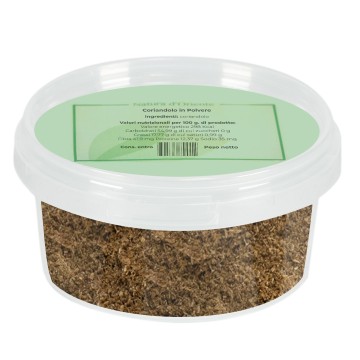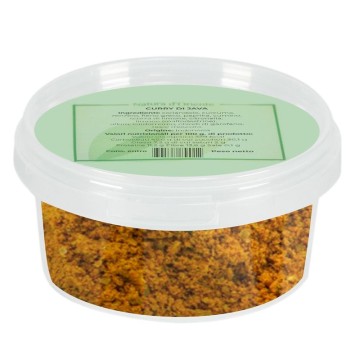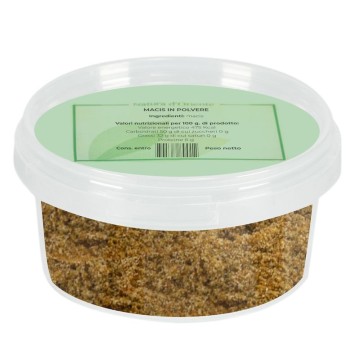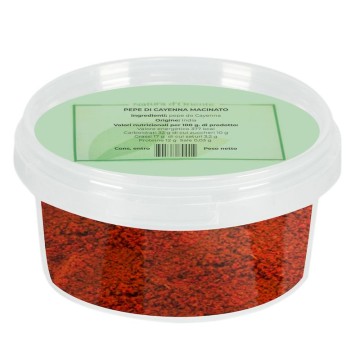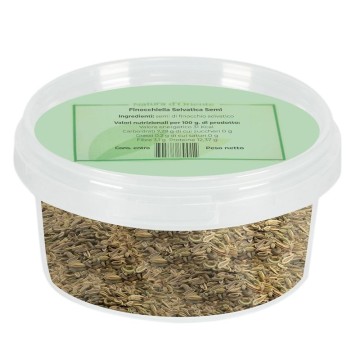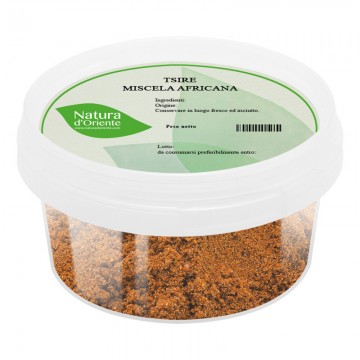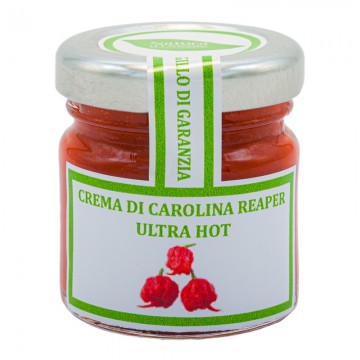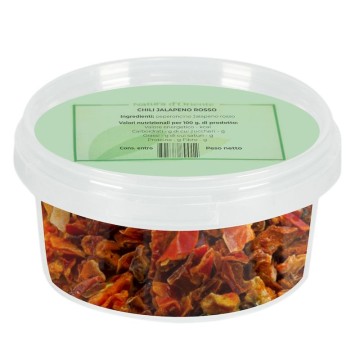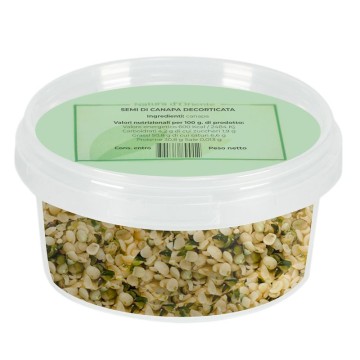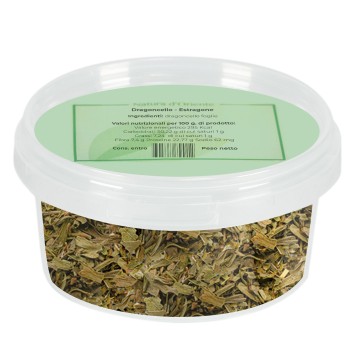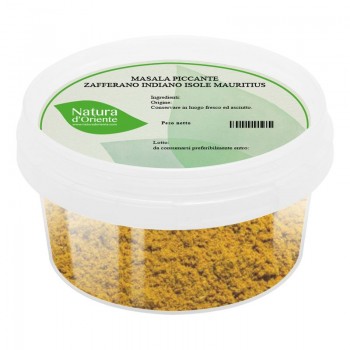These small edible seeds have been used in many cuisines around the world for centuries, both for their content of beneficial nutrients and for the crunchiness they give to many dishes. Their blue-grey colour makes them spectacular in dishes, while they release a sweet aroma during cooking. When tasted, the flavour of poppy seeds is similar to that of hazelnut, with an aftertaste of almond when heated. They are highly appreciated in pastry and baked goods, but have been used for centuries as a natural remedy for well-being.
What are the benefits of poppy seeds?
The first virtue of these seeds is nutritional. They are rich in fibre, healthy fats and numerous micronutrients. In particular, they are an excellent source of manganese - a mineral useful for our body. They are excellent antioxidants and among the compounds contained in poppy seeds, there are vitamins of group B, C and E. Together with manganese, these vitamins have an action of contrasting free radicals, slowing down cellular aging. The seeds also contain magnesium, iron, potassium, calcium and other minerals, which contribute to the well-being of the metabolism, cognitive function and bones. For these reasons, the intake of poppy seeds is suitable for athletes and the elderly. Poppy seeds are a useful source of linoleic acid, a type of omega-6 vegetable fatty acid that can have positive effects on cardiovascular health. The presence of oleic and linoleic acid in the seeds is useful for regulating LDL (bad) cholesterol levels, increasing HDL (good) cholesterol. These unsaturated fats also help the body thanks to the fiber content present in the cuticle, useful for maintaining a healthy intestine.
These seeds are known in herbal medicine and natural medicine for their properties, useful for the functionality of the respiratory tract and the fluidity of bronchial secretions. The mild alkaloids present in poppy are considered useful as sedatives for coughs, whether dry or productive. In ancient times, red poppy decoction was used against coughs by boiling 2 pinches of seeds in a cup of water for about 5 minutes. In addition, poppy seeds are used for their calming properties in alternative medicines. Thanks to their papaverine content and low levels of alkaloid compounds, they are considered a natural remedy for relaxation, against stress and to promote rest. A relaxing poppy herbal tea can help induce sleep and calm, counteracting states of tension.
How to buy poppy seeds online
If you want to use these seeds, you can find them for sale online at Natura d'Oriente in various packs of 75 g, 150 g, 250 g, 500 g and 1 kg. The affordable price of poppy seeds increases by ordering a larger quantity.
Poppy seeds: side effects and contraindications
Poppy seeds do not have any particular contraindications for taking in small quantities. It is good to consider that they are caloric foods and may contain traces of alkaloids (from contamination), which induce drowsiness. For this reason, it is usual to treat the seeds by washing them: they are soaked or cooked, to reduce the possible content of alkaloids. It is not recommended to consume large doses, especially for pregnant or breastfeeding women, and for children.
How to use poppy seeds in cooking?
These seeds are a pleasure as a spice, thanks to their intense nutty flavor, when toasted or cooked – this way they take on more flavor and aroma. They have a delicate flavor, with an underlying sweetish note that is much appreciated in baked goods and desserts. In several Central and Eastern European countries, in fact, poppy seeds are traditionally used in bread and cakes, crunchy if whole or ground to be mixed into biscuits and cake mixes. They can be used as a decoration on a dish, like other seeds, and are also useful as a snack to stave off hunger, to feel fuller, in small quantities. They are usually used in cooking after soaking them for an hour, before grinding them and adding them to the dough. Soaking softens the outer coating, and facilitates the release of flavor compounds during cooking. Alternatively, they are subjected to high temperatures, whole or after grinding.
Desserts: European tradition uses poppy seeds extensively to create desserts such as Polish and Russian poppy seed cake, German sweet dumplings Dampfnudeln, poppy seed rollsor Hungarian Beigli, strudels and puddings; they are used in lemon muffins, tarts and citrus desserts. In Arab countries, the seeds are used in baklava, a sweet pastry made of filo pastry. They pair well with yogurt, smoothies, granola and oatmeal for breakfast or snacks; they can add a crunchy touch to fruit salads.
Savory recipes: they are known as an ingredient in bread dough, breadsticks, crackers, rolls, pancakes, bagels and other baked specialties; they are combined in recipes with garlic and onion, in soups or to flavor cooked vegetables such as asparagus and potatoes. They can be combined with chicken or tuna salads - sprinkling a teaspoon of poppy seeds in the dressing. They are also used in breading, even with butter, and in batter to create crispy pancakes. In various recipes you can try them to season rice or risotto dishes, couscous and spelt.
Meat: the seeds are added to the breading of fish and white meats, thanks to their tiny consistency. Ground, they can be sprinkled on baked or grilled salmon, lamb dishes, pork meatballs.
Mixtures: poppy seeds go well with cinnamon, lemon or orange peel, nutmeg, vanilla, almonds.
Sauces: they are used in sauces to give consistency to dishes in salad dressings, canapés and croutons. They are used in the form of poppy seed paste in Indian cuisine (water and dried seeds ground after soaking).
Herbal tea: leave 1 teaspoon of seeds to infuse in boiling water for 5 minutes.
Due to the high oil content in poppy seeds, they can go rancid over time. It is best to store them in an airtight container away from direct sunlight and moisture.
The Recipe: Poppy Seed Dressing Sauce
Ingredients:
3/4 cup avocado oil - 1/4 cup apple cider vinegar - 1/4 cup raw honey - 1 teaspoon onion powder - 1/2 teaspoon sea salt - 1 tablespoon poppy seeds - 1 teaspoon Dijon mustard
Directions
Combine the honey, vinegar, onion, and mustard in a blender. Blend on low speed for 45 seconds, while slowly pouring in the oil – in a steady stream. Pour the dressing into the airtight jar you will be using to store it. Add the poppy seeds to the dressing in the jar, and add the salt. Shake or stir to combine. Seal and store. You can use the poppy seed sauce as a salad dressing, on canapés and bread.
Origins and History of Poppy Cultivation
Where do poppy seeds come from? They come from the Papaver plant, which has several varieties, all belonging to the Papaveraceae family. The common poppy is usually considered a plant native to the European and Asian continents - also widespread in North Africa and North America. Some scholars believe that the poppy is native to an area of the Asian plateau between the Pamirs and Iran. Among the most well-known varieties of Papaver are P. Somniferum from which seeds and opium are extracted (whose cultivation in Italy is regulated by authorization), and the one most used for the production of commercial seeds is Papaver nigrum. The most widespread species in Italy is Papaver rhoeas, also known as corn poppy or wild poppy.
The plant is famous for its colorful flowers with delicate petals, and blooms from spring to mid-July. The seeds can vary from gray to black or bluish depending on the type of cultivar. The petals and seeds have been famous since ancient times for their slightly sedative power. Although they come from the poppy, the seeds do not contain opium compounds, since the strongest alkaloids are present in the poppy pod. The seeds are usually collected when they are ripe and then dried for food use. Often the poppy seeds sold commercially are previously toasted to obtain an optimal flavor. They are also used to produce an oil rich in linoleic, stearic, palmitic and oleic acids.
Historically, the poppy is one of the first plants cultivated in Europe in the Neolithic era. The plant developed with the spread of wheat and agricultural work, in fact the poppy is defined as a "synanthropic" plant, that is, it follows man in his movements. It is mentioned in the Iliad by the poet Homer in the 8th century BC and was also used by the Celts, who inserted poppy seeds into children's food to make them sleep. The ancient Romans mixed the seeds with honey, toasted them and prepared a typical dessert, the placenta, with honey and poppy (placenta mellita papavere). They believed in their aphrodisiac properties.and, in fact, they inserted the seeds into the drink offered to the newlyweds, the cocetum. Furthermore, the plant was sacred to Ceres, goddess of the harvest and agriculture. In Arab countries and in the Indian subcontinent they were used to treat various ailments, and considered medicinal seeds for digestion, breathing, relaxation.

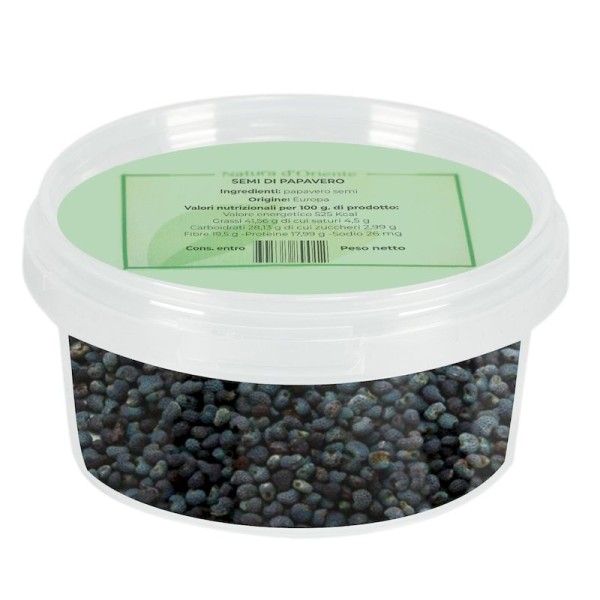









 No reward points for this product.
No reward points for this product.
